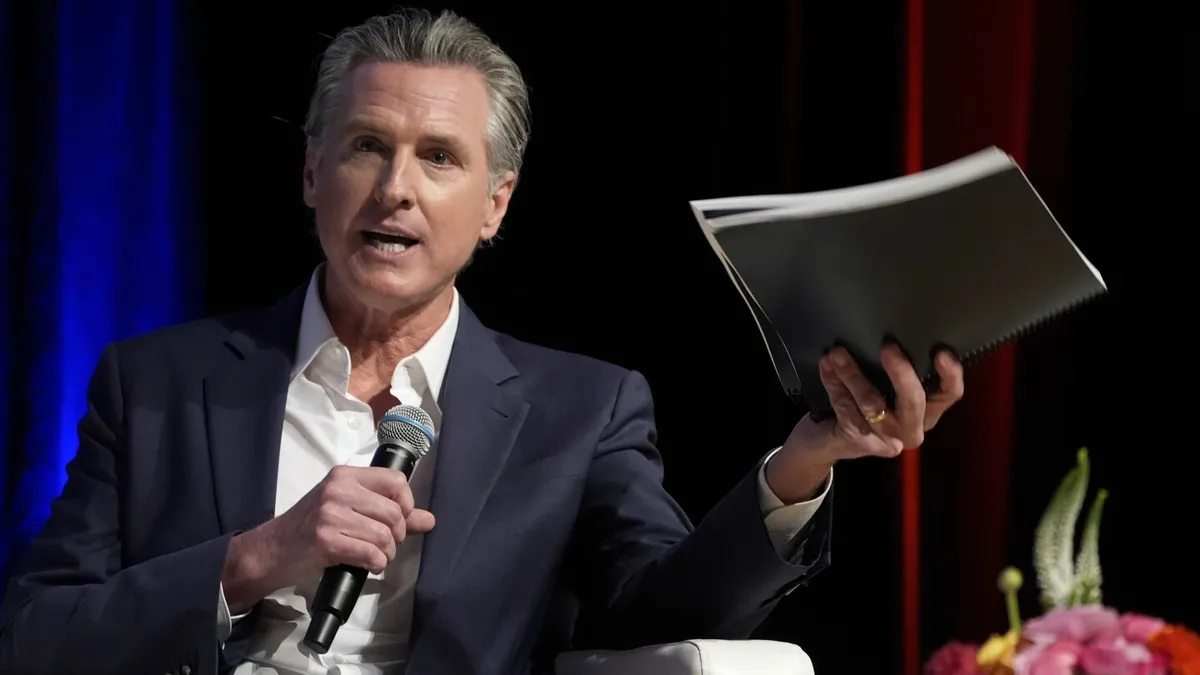
In a surprising move, California Governor Gavin Newsom, who is considered a potential candidate for the 2028 Democratic presidential election, expressed his views against the participation of transgender women and girls in female sports during the inaugural episode of his new podcast, “This is Gavin Newsom.” This statement marks a departure from progressive viewpoints and has sparked significant discussion within the political landscape.
In a lengthy conversation with conservative activist Charlie Kirk, founder of the influential Turning Point USA organization, Newsom articulated his stance on the issue. Kirk, known for his vocal opposition to transgender athletes competing in women's sports, engaged Newsom in a discussion that highlighted the fairness aspect. “I think it’s an issue of fairness, I completely agree with you on that. It is an issue of fairness — it’s deeply unfair,” Newsom stated, reinforcing the sentiment of many who question the inclusion of transgender athletes in women's competitions.
Newsom’s remarks come at a time when the Democratic Party is grappling with the implications of the recent elections, which saw Donald Trump reclaiming the White House and Republicans gaining control over both chambers of Congress. The debate continues regarding the role of cultural issues versus economic policies in explaining the party's setbacks.
Polling data indicates that the notion of allowing transgender female athletes to compete on women's teams does not have widespread support. A January New York Times/Ipsos poll revealed that around 70% of Democrats oppose this participation. Additionally, a 2023 Gallup poll showed a divide among Democrats regarding whether transgender individuals should compete on teams that align with their current gender identity.
Newsom’s comments have drawn sharp criticism from LGBTQ advocates. California Assemblyman Chris Ward and State Senator Carolina Menjivar, who lead the state's LGBTQ legislative caucus, expressed their disappointment, stating, “We woke up profoundly sickened and frustrated by these remarks.” Tony Hoang, executive director of Equality California, voiced similar sentiments, emphasizing the need for leaders to unequivocally fight for the rights of the transgender community amid ongoing attacks from extremist politicians.
Under existing California law, schools are mandated to permit transgender athletes to participate on sports teams that correspond with their gender identity, a policy established prior to Newsom’s governorship.
Beyond the realm of athletics, public support for restrictions on transgender rights, including access to medical care, remains low, particularly among Democrats. According to AP VoteCast, 55% of voters in the 2024 election felt that support for transgender rights in society has gone too far, while only about 20% believed it was appropriate.
Interestingly, opposition to laws that ban gender-affirming medical treatment for minors has also been noted, showing a complex landscape of public opinion on transgender issues.
Republicans, including Trump, have strategically capitalized on these cultural issues. Trump has consistently criticized Democratic figures like Vice President Kamala Harris for their support of LGBTQ+ rights. During his rallies, he pledged to eliminate “transgender insanity” from schools and to keep men out of women’s sports.
In discussing the effectiveness of these strategies, Newsom acknowledged Kirk's point about the political weaponization of these issues, stating, “Boy, did I see how you guys were able to weaponize it.”
While Newsom’s recent statements may seem contrary to his progressive image, they reflect a nuanced approach as he navigates complex political terrain. Throughout his career, particularly as the Mayor of San Francisco in 2004, he has championed progressive causes, including the legalization of same-sex marriage, which was later affirmed nationally by the Supreme Court.
As the 2024 election cycle approaches, Newsom's comments on transgender participation in sports will likely continue to resonate within the broader debate on cultural issues and their impact on electoral outcomes.